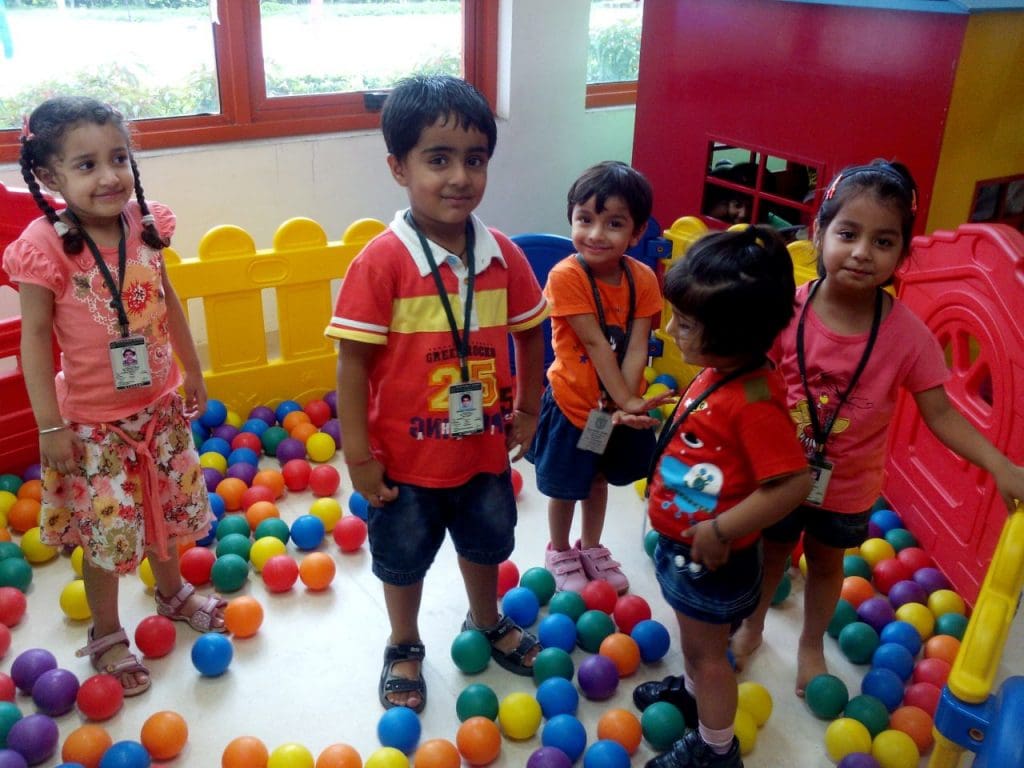By Shalini Jaiswal
Director Academics, Maple Bear South Asia

When children enter school they regard learning as a pleasurable experience so that they are naturally inclined and eager to learn. At this stage focus should be on developing a strong foundation in all areas of development, developing a positive attitude towards learning and promoting independence.
Best practices to make teaching and learning more effective in Early Years:
Direct Sensory Experiences
Children learn through direct sensory experiences and should be given opportunities to manipulate, explore and experiment with real objects as they are curious learners and are eager to know about the world around them.
Play
Play helps them deal with their feelings, interact with children and adults and learn to resolve conflicts. Providing them information in a variety of ways helps them clarify their understanding, integrate ideas from their previous experiences, explore and experiment with their environment.
Hands-on Learning
Integrating topics and skills through hands on learning will help them make sense of the world around them. Teacher directed group activities followed by self-initiated play with regular daily activities of story time, music and movement, snack, outdoor play, and clean up should be the daily routine.
Circle Time
Circle time should be used initiate discussions on specific topics. Teachers should encourage children to talk and share their own ideas through questioning rather than making them repeat facts without understanding. During this talk times children learn to organize their thoughts, retell a story-in sequence and learn songs and rhymes.
Language
Language should focus on listening, comprehending and speaking first rather than reading and writing. Children should be able to express themselves in a language before they learn to read and write. This will move them away from rote memorization at a later stage as they will be able to frame their thoughts into sentences.
Math
Math should be focused on all the strands of Math (number concepts, algebra, geometry, data handling, and measurement). Concepts should be introduced with manipulates in a meaningful way where each child uses them to problem solve. If a child is able to understand the why and how about solving a problem, figuring out complex equations at a later stage becomes easier.
Music
Children love to listen to music, move their bodies to music and make their own music. They learn it the same way as they learn a language-through listening and imitating. Rhymes and finger plays helps children to connect the outer world of motion and sound to the inner world of feelings and observation.
Art Projects
In Art projects the process and not the product should be most important. Teachers should be ready for the mess! Giving opportunity to use a variety of materials reinforces and expands on the information the child has already learnt in other contexts often through trial and error. Use of scissors, paint brush, felt pens and play dough helps them develop fine motor skills to be used for writing at a later stage.
The cross-lateral movement exercise (right arm/left leg and vice versa) during outdoor play is critical to success in reading and writing later. Carefully designed adventure tracks using pillows, empty cartons, paper strips, hula hoops etc. help children follow instructions and develop their gross motor skills.
Snack Time
Snack time should be an opportunity to learn social skills. Helping children take out their own lunch boxes and clean up after snack time reinforces competence and independence.
Choice Time
During choice time the children should be allowed to choose from a variety of activities that the teacher has arranged in the classroom and are accessible to the children. The teacher should observe, interact and guide the children being a facilitator and enabling children to have a positive experience so that they have a sense of satisfaction.
Clean up
Clean up is very important where children take the responsibility of putting the things back in the class. They learn the value of helping behaviour, self-discipline, how to follow directions; and the importance of taking care of their environment.
Asking Questions
Modelling, asking a lot of questions rather than telling helps children connect and express their understanding. Encouraging children to ask a lot of questions also helps them to clarify their understanding. Leading the child to the right answer by probing her/ him further rather than giving the answer immediately is crucial for a strong foundation. At this stage it is very important to let mistakes happen which will help children learn perseverance and problem solving skills.
Risk Taking
Children should grow in an environment where risk taking is encouraged and where they see themselves as competent and independent learners. Focus should be on long term goals of building a strong foundation to achieve success in future as what they learn today may not be of any use 20 years later. Children should have the skill to acquire new knowledge and adjust their thinking as they grow rather than short term goals of recognizing and writing alphabets and numbers.


